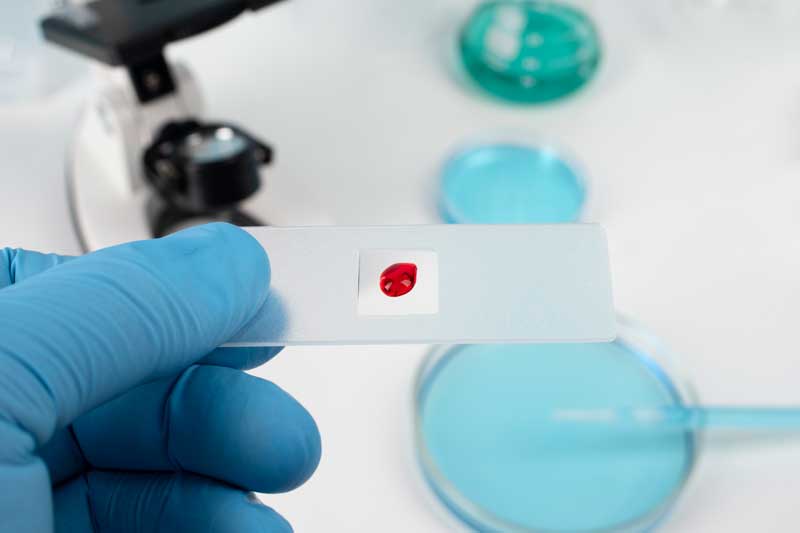
2025/11/13
ERYSAFETY project launches to create safer models for drug development
The ERYSAFETY project, a public–private collaboration driven from the Basque Country, will develop an innovative experimental model of hemolytic anemia to improve the assessment of drug safety, promoting a more secure, efficient, and patient-centered pharmacology.
What if it were possible to anticipate a drug’s adverse reactions even before clinical trials begin? With this question in mind, a multidisciplinary team of researchers and Basque companies has launched ERYSAFETY, a public–private collaboration funded by the Spanish Ministry of Science, Innovation and Universities (MICINN).
The project’s goal is to develop an in vivo model of hemolytic anemia that enables more precise evaluation of drug safety and helps prevent adverse effects in patients.
Hemolytic anemia occurs when red blood cells are destroyed faster than the body can replace them. Certain medications can trigger this process in individuals with genetic predispositions, such as those with G6PD enzyme deficiency. However, reliable experimental models to study these effects early and safely are still lacking, a gap ERYSAFETY aims to fill.
The project combines biotechnology, biophysics, and cellular biology to reproduce in the laboratory how red blood cells respond to different drugs.
Researchers will develop artificial blood and modified erythrocytes to simulate clinical risk conditions, along with specific monoclonal antibodies to detect the earliest signs of hemolysis.
This approach will allow the scientific community to better understand the cellular mechanisms behind erythrocyte destruction and provide the pharmaceutical industry with a novel tool for assessing compound safety before reaching patients.
ERYSAFETY exemplifies how public–private collaboration drives biomedical innovation. The consortium includes The Art of Discovery (TAD), a Basque biotechnology company coordinating the project; CIC bioGUNE, an international reference center in integrative molecular and cellular biology; and the Biofisika Institute (EHU-CSIC), specialized in molecular biophysics and antibody development.
“We are in a very exciting moment for the development of advanced cell-based therapies specially for the production of stem-cell derivative products such as the artificial blood we want to generate with this project” explains Juan Manuel Falcón, CIBERehd researcher and Ikerbasque Research Professor, who leads the Exosomes Laboratory and the Metabolomics Platform at CIC bioGUNE, member of BRTA, and is one of the project’s principal investigators. “We are confident that our cellular biology expertise and knowledge on the exosomes biology which is in the basis of final erythrocyte formation will be very important for the success of our aim that fulfilling a big biomedical need as it is the fabrication of artificial blood for clinical uses”.
Over the next three years, the team will develop and validate its hemolytic anemia model, aiming to establish it as a European benchmark for pharmacological safety assessment.
Beyond its scientific value, ERYSAFETY seeks to improve drug development processes, reduce the use of animal testing through more accurate predictive models, and ultimately protect patient health.
This initiative is part of the 2024 Public–Private Collaboration program of the MICINN and represents a strategic commitment to responsible innovation in biomedicine, reinforcing the Basque Country’s leadership in translational research and biotechnology applied to health.
Image credit: © Figure from Freepik.
About CIC bioGUNE
The Centre for Cooperative Research in Biosciences (CIC bioGUNE), member of the Basque Research & Technology Alliance (BRTA), located in the Bizkaia Technology Park, is a biomedical research organisation conducting cutting-edge research at the interface between structural, molecular and cell biology, with a particular focus on generating knowledge on the molecular bases of disease, for use in the development of new diagnostic methods and advanced therapies.
About Ikerbasque
Ikerbasque - Basque Foundation for Science - is the result of an initiative of the Department of Education of the Basque Government that aims to reinforce the commitment to scientific research by attracting, recovering and consolidating excellent researchers from all over the world. Currently, it is a consolidated organization that has 290 researchers/s, who develop their work in all fields of knowledge.
About BRTA
BRTA is an alliance of 4 collaborative research centres (CIC bioGUNE, CIC nanoGUNE, CIC biomaGUNE y CIC energiGUNE) and 13 technology centres (Azterlan, Azti, Ceit, Cidetec, Gaiker, Ideko, Ikerlan, Leartiker, Lortek, Neiker, Tecnalia, Tekniker y Vicomtech) with the main objective of developing advanced technological solutions for the Basque corporate fabric.
With the support of the Basque Government, the SPRI Group and the Provincial Councils of the three territories, the alliance seeks to promote collaboration between the research centres, strengthen the conditions to generate and transfer knowledge to companies, contributing to their competitiveness and outspreading the Basque scientific-technological capacity abroad.
BRTA has a workforce of 3,500 professionals, executes 22 % of the Basque Country's R&D investment, registers an annual turnover of more than 300 million euros and generates 100 European and international patents per year.
See a large version of the first picture





